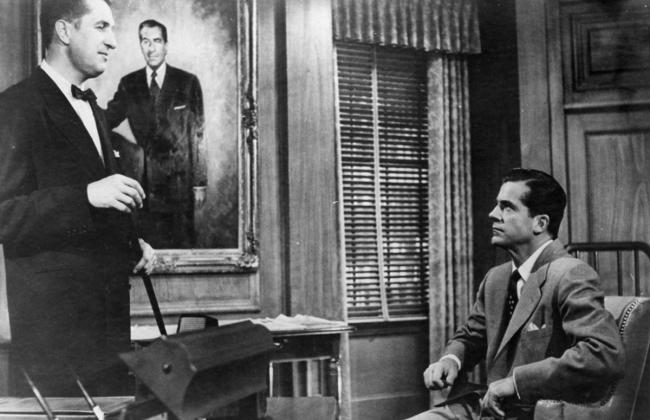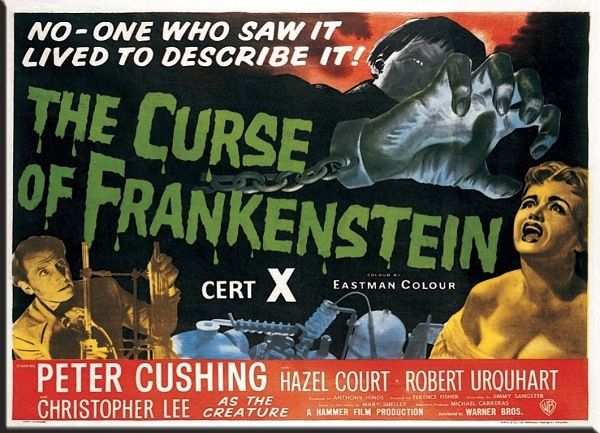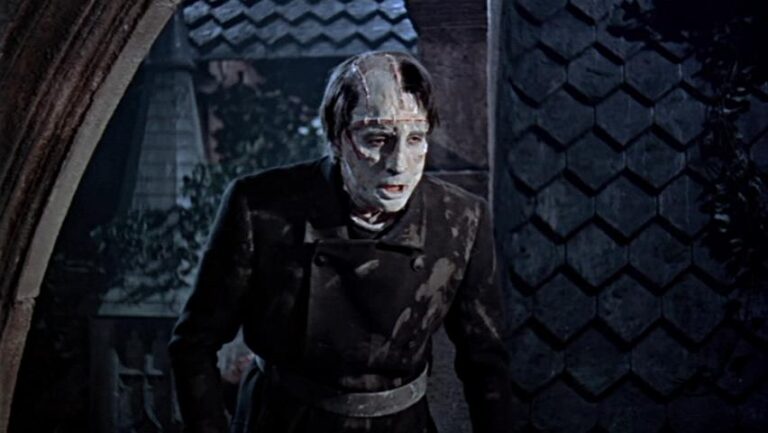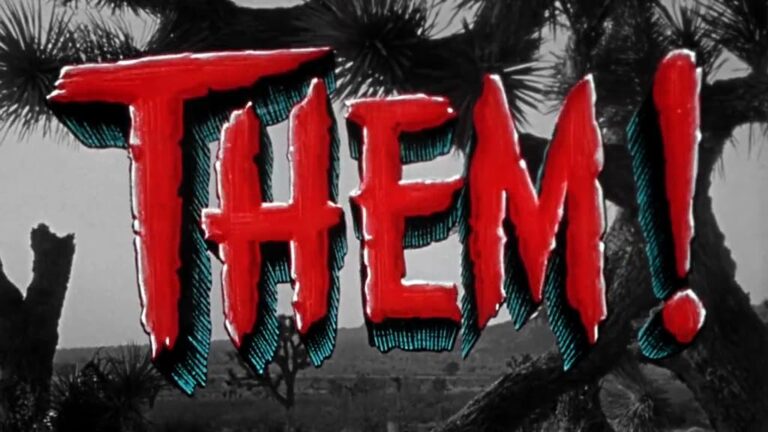Directed by Fritz Lang
Written by Casey Robinson
Starring:
- Dana Andrews as Edward Mobley
- Rhonda Fleming as Dorothy Kyne
- George Sanders as Mark Loving
- Howard Duff as Lt. Burt Kaufman
- Thomas Mitchell as Jon Day Griffith
- Vincent Price as Walter Kyne
- Ida Lupino as Mildred Donner
- John Drew Barrymore as Robert Manners (credited as John Barrymore Jr.)
Rating: ![]()
Fritz Lang’s tabloid film about tabloid reporters covering a sensational crime story is one of the coldest, most cynical examinations of the world of modern journalism. Lang’s second-to-last Hollywood film offers an atypical, alternative take on the terrifying “empathetic” factor artfully fleshed out in his influential 1931 masterpiece M. With this opus of understated misanthropy and indiscreet pessimism, Fritz Lang makes it self-evident that he sympathizes more with the marginalized villains than with the venerated heroes; While the City Sleeps doesn’t need extensive insinuations to speculate on this, it needs only a remorselessly ironic twist to externalize Lang’s contempt for human cupidity and his disdain for Western moral relativism.
Clearly economical yet as ambitious as RKO’s finest A-grade pictures, While the City Sleeps may not have the visual panache of Lang’s previous films or be his most immaculate piece of filmmaking, but it has the strongest cast Lang has ever worked with. Second only to John Huston’s The Maltese Falcon, Lang’s film features my favorite cast of all time. Fritz Lang envisions Casey Robinson’s whip-smart B-movie screenplay – based on a newspaper drama about the real-life lipstick killer – not as a hard-boiled thriller or a hard-hitting suspense vehicle, but as a sociopathic, savagely entertaining character drama.
The stars of this immoral gala of yellow journalism lampoonery are the sympathetic and discreetly supercilious news anchor Edward Mobley (played with his trademark gruff manner by Dana Andrews), the smarmy wire chief Mark Loving (played with spurious probity by George Sanders), the energetic newspaper chief Jon Day Griffith (played superbly by Thomas Mitchell), and the annoyingly hypocritical TV chief Harry Kritzer (played with shameless chutzpah by James Craig). They are all equally deviously charming. When the news mogul for whom all these characters work passes away, his only heir, his conceited son Walter Kyne (perfectly played by Vincent Price) takes over the media business empire his father once owned. Walter is not a news man, nor does he really understand the industry, he lives comfortably off his father’s fortune and pretends to run the news business by his own rules. His ultimate idea for learning how to navigate the convoluted realm of news is to get an executive director. But he doesn’t intend to just pick one, he intends for someone to earn the job. The aforementioned colorful news reporters are the contestants, only one of them will get the coveted prize. The first one to get the scoop on the lipstick killer case will get the position. Ambitions go from being greedy to being destructive, mainly because of the collateral damage caused by their perversities. In the midst of this frenzied, rapacious rivalry are the alluring reporter Mildred (Ida Lupino), the deluded Lt. Kaufman (Howard Duff), Nancy (Sally Forrest), a mild-mannered secretary and Mobley’s fiancée. And the picture’s manipulative quasi femme fatale, Walter Kyne’s wife and Kritzer’s mistress, the glamorous Dorothy (Rhonda Fleming). These characters are the ones who complete the vicious cycle of the mischievous plot, damaging each other and relishing it, all for the sake of a damn job.
At the outset, the intentions of each of these competitive newsmen are so unforeseeable that we as an audience take a stand and root for some of them. Lang’s crude, wryly artless camerawork preys on our naiveté and assaults our humanistic trust to make us believe that in some of them (essentially Dana Andrews’ character) there may be bona fide motives. But there isn’t, and discovering it is such a lusciously malevolent exercise that it involves us in this gladiatorial combat, only instead of barbarians wrestling in the Roman coliseum, they are educated journalists (albeit also barbarians) in the shambolic urban sprawl of the American metropolis. Pre-Psycho, pre-gialli, pre-slasher, made before the serial killer craze proliferated in genre cinema, Fritz Lang’s brutally cynical 1956 film already employed much of the paraphernalia of modern horror cinema. The tormented serial killer, played by John Barrymore Jr. here wears black leather gloves and his gaze is steadily voyeuristic. The plot might not be entirely killer-centric, but the opening is inadvertently the first slasher sequence in the history of American cinema.
Everything is ironic in Lang’s film, the dialogue flows with a mordant gusto, the innuendos are so raunchy and sardonic that not even the Hays Code could curtail their ardor, and the atmosphere is so bombastic that it seems like an irony within an irony – a lurid story within a lurid story. Even its urban setting is wonderfully ironic – the story takes place in New York City, but it is clearly Los Angeles – all of these factors contribute to the acidic storytelling; it is funny in the cruelest sense of the word. There are no redeemable characters, except perhaps the killer? This is the depth of complexity that Fritz Lang has always been accustomed to working with, and here he does it splendidly fine. A dark masterpiece among many dark masterpieces in the filmography of one of the truly great filmmakers in the history of cinema.









